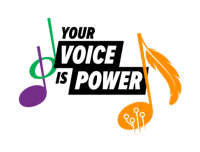Entry Requirements
Read on to understand the entry requirements to ensure your submission is eligible.
Make Beats:
- Your song is a minimum of 30 seconds (16 measures) and a maximum of 3 minutes. Your song has at least 5 unique sounds.
- Your song includes at least one sound clip (stem) from an Indigenous artist featured in the program (Aysanabee, Dakota Bear, Dr. Duke Redbird, Jayli Wolf and/or Samian).
- Your song is original. You have changed the style, tempo, order of beats, or mixed in new sounds.
- Do you have any sounds that are not from the EarSketch library or that were recorded by you in your code? If so, did you attribute the source in the comments? Any copyrighted sound clips must be removed from your song. Information on copyright can be found in the Curriculum Panel here.
Learn Code:
- Your song includes the EarSketch API fitMedia function to insert sound clips.
- Your song uses variables.
- Your song uses comments to describe the code and document your message in the song.
- Your song includes custom/user-defined functions.*
- EarSketch has a tool to measure student code complexity. It is the Code Indicator menu item you can find when you select the three lines next to your script. The minimum score you should receive for a competition-ready song is 60 (2 functions). If you're a more advanced coder, we challenge you to surpass a score of 100 in code complexity.*
*Items marked with an asterisk are required to be eligible for the grand prize. Songs that do not meet these criteria are eligible for runner up and honorable mention prizes.
Promote Equity:
- Your song includes a Call to Action that promotes equity and justice.
- Your song demonstrates student awareness or analysis of racial injustice.
- When prompted on the submission form as you submit your song, you provide a short reflection about your song and how you incorporated the 4R themes of Respect, Relevance, Reciprocity, and Responsibility.
A quick note on copyright.
All music samples in the sound library are licensed, so you can use them as you wish in your music.
However, this is not true with all music. All music has copyright (in fact two copyrights); rights to a song and rights to a sound recording.
Copyright protects the creator of a piece of original work to have the exclusive right to reproduce and use that work.
If you are using sounds outside of the EarSketch library (for example, uploading stems from your computer), you must check the copyright and look for a Creative Commons license (such as sound clips on Freesound) or a free culture license.
You may record your own instruments and vocals, but you cannot upload samples or covers they do not have the rights to. Click here for more info on copyright.
Submit
Even if you aren’t sure if your song will win, please submit because YOUR VOICE IS POWER!
We want to collect thousands of students' songs to show the power of this movement.
Follow this link to submit your song!

